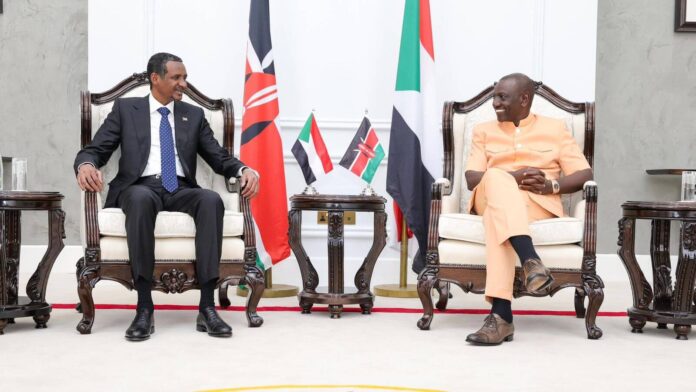Written by Lisa Murimi
Kenya’s role as a regional peace broker is under intense scrutiny after it hosted Sudan’s sanctioned Rapid Support Forces (RSF) and their allies for the launch of a parallel Sudanese government.
The move has ignited a diplomatic storm, with global powers—including the United Nations, the United States, Saudi Arabia, Qatar, Egypt, and France—firmly rejecting the legitimacy of the initiative.
Kenya, long regarded as a neutral arbiter in regional conflicts, now faces accusations of interfering in Sudan’s internal affairs.
The Sudanese Armed Forces (SAF) swiftly condemned the RSF’s Nairobi Charter, which was signed in late February, and recalled its ambassador from Nairobi.
Khartoum also threatened economic reprisals, arguing Kenya had granted undue legitimacy to a sanctioned paramilitary group.
The regional backlash was swift. Saudi Arabia, Qatar, and Kuwait all released statements reaffirming their commitment to Sudan’s sovereignty and rejecting the formation of a rival government.
Riyadh warned that any illegitimate steps risked further destabilizing the region, while Qatar urged all factions to avoid foreign interference.
As pressure mounts, Kenya now faces tough questions about its diplomatic credibility and whether it has jeopardized its standing as a trusted mediator in regional conflicts.



















